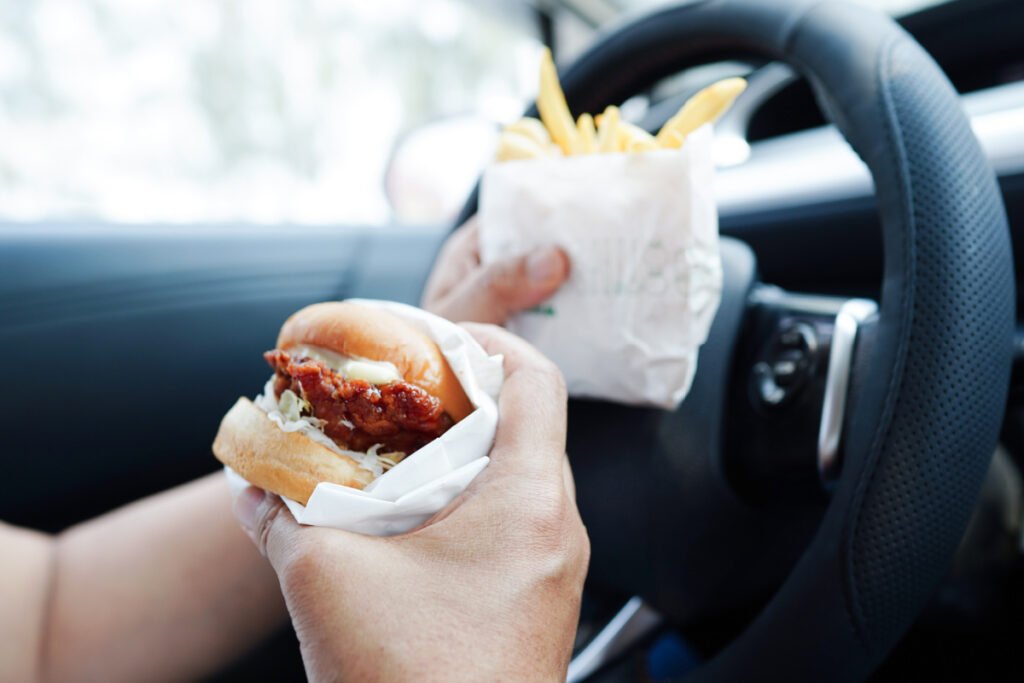Food Addiction Isn’t Your Fault—It’s the Food’s

Go to any grocery store and you’ll see endless aisles of food choices at your fingertips. And among these, it’s the ultra-processed, convenience foods that most often grab our attention. In fact, they comprise more than half of the calories consumed by an average American.
Even though we know that foods loaded with artificial “junk” are not good for our bodies, their deliciousness, availability, packaging, and time-saving convenience make them especially appealing—and even, according to some scientists, irresistible.
Why ultra-processed foods may be addictive
While we call it junk food, fast food, convenience food, or comfort food, scientists call it “ultra-processed food”—a category that includes pizza, potato chips, candy, cookies, ice cream, chocolate, french fries, white bread, sugary cereals, sodas, and energy drinks. According to a New York Times article, many nutrition experts suspect these foods themselves may be contributing to the epidemic of obesity, heart disease, and Type 2 diabetes.
Ultra-processed, highly-engineered foods often contain ingredients that are stripped of natural nutritional components like fiber, water, and protein, which take time for the body to digest. Instead, food manufacturers have designed foods that are high in unhealthy fats, sodium, and refined carbohydrates. Processed and packaged foods also contain artificial additives and preservatives meant to enhance the foods flavor and “experiential” properties and mouth-feel.
Processed, chemically-altered ingredients stimulate the areas of the brain associated with pleasure and reward, similar to addictive substances like drugs and alcohol.
This potent (and deliciously palatable) combination is vastly different from the simple whole foods that humans evolved to eat, such as fruits, vegetables, meats, whole grains, and legumes. Processed, chemically-altered ingredients are rapidly absorbed into the bloodstream and go on to stimulate the areas of the brain associated with pleasure and reward, similar to addictive substances like drugs and alcohol.
These modified ingredients also cause rapid spikes and crashes in blood sugar levels, while hijacking our hormones, dysregulating our appetites, and eliciting compulsive eating behaviors that mimic addiction response (such as intense cravings and a loss of control). This is why some researchers claim that “food addiction” is a real phenomenon.
(It’s worth noting, however, that some researchers reject the notion of “food addiction” because of the lack of a chemical change in the brain after eating ultra-processed foods.)
- Read more: “Unhealthy Foods Aren’t Just Bad For You, They May Also Be Addictive” via The New York Times »
Is it possible to overcome food addiction?
If you struggle with over-consumption of processed foods, researchers recommend several strategies:
- Eat regularly to avoid becoming very hungry, which could make you more likely to opt for something ultra-processed.
- Keep a food journal to help you identify the foods that you are the most susceptible to, and replace them in your fridge and pantry with healthier alternatives that you enjoy.
- Write down the triggers that may be leading you to indulge cravings. For example, your trigger may be a stressful day at work, or simply driving by a certain fast food restaurant on the way home. Look for alternative ways to handle feelings—i.e. with mood-boosting activities like exercise, crafting, dancing, or socializing—and aim to avoid location-based triggers as best you can.
Importantly, try to fill your plate with a balanced diet of nutritious, whole foods. Eating “clean” and mindfully will support your physical health and overall well-being long term.
Inland Empire weight loss surgery
The doctors at our Rancho Cucamonga weight loss clinic specialize in transformative weight loss surgeries like gastric bypass and lap band surgery. If you are ready to explore medical solutions to address weight-related concerns, we invite you to schedule a consultation to learn if you may be a good candidate. Call 909-579-3111 or reach us online to take the first step!
